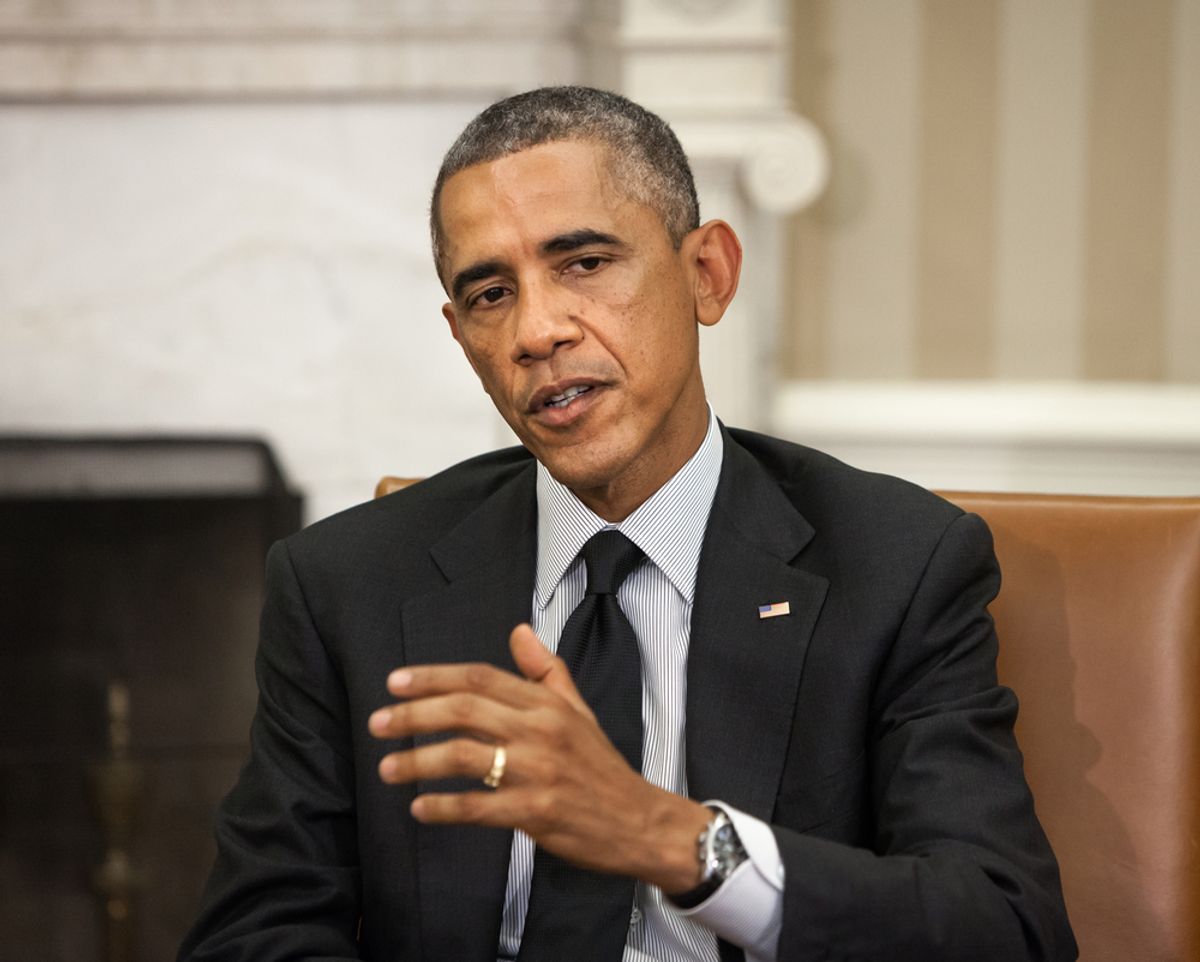The White House just came out with a brand new proposed Authorization for the Use of Military Force (AUMF) against ISIS, and in many ways it’s a revealing document. More than anything, it highlights just how grossly dysfunctional the conduct of American foreign policy has become over the last decade or so. The president is coming to Congress to get retroactive authorization for a war he started half a year ago – a war those same members of Congress were all too happy to let proceed without their official approval. We’re talking about the commitment of U.S. military forces to an active war zone, and the president and Congress are approaching their constitutionally mandated responsibilities as one would a minor and unpleasant chore, like getting your tires rotated or sorting the recycling.
But that’s pretty much what you’d expect, given that this whole push for a new AUMF is being done largely for the sake of appearances. The halting and strategically muddled war we’ve been fighting against ISIS is, in the White House’s eyes, already justified. Their proposed language for the AUMF places some uncertain and vaguely defined limits on what sort of actions the president can take in fighting the Islamic state, but it doesn’t address in any way the AUMF passed in 2001 that gave rise to the endless war on terror, of which the Obama administration’s campaign against ISIS is definitely a part.
The White House cited the 2001 AUMF’s vague language authorizing the president to attack forces “associated” with al Qaeda as a justification for conducting this war on ISIS without seeking Congressional approval. So if Congress can’t agree on an updated AUMF or if they amend it in a way he finds disagreeable, Obama can just shrug his shoulders, say “eh, I tried,” and keep right on fighting this new war.
In the midst of all this, though, Obama is making it known that he’s still opposed to the 2001 AUMF, even as he uses it to justify taking military action. In a letter to Congress accompanying the draft AUMF, the president wrote:
Although my proposed AUMF does not address the 2001 AUMF, I remain committed to working with the Congress and the American people to refine, and ultimately repeal, the 2001 AUMF. Enacting an AUMF that is specific to the threat posed by ISIL could serve as a model for how we can work together to tailor the authorities granted by the 2001 AUMF.
We’ve been hearing this for a while. Almost two years ago, in a May 2013 speech, the president stated his intention to work with Congress to repeal the 2001 AUMF. “I look forward to engaging Congress and the American people in efforts to refine, and ultimately repeal, the AUMF's mandate,” he said. “And I will not sign laws designed to expand this mandate further. Our systematic effort to dismantle terrorist organizations must continue. But this war, like all wars, must end.”
For Obama to want to expunge the 2001 AUMF makes all the sense in the world – he’s an opponent of so many of the abuses the AUMF has been used to justify (Guantanamo Bay, torture, etc.). He campaigned as a critic of the expansive war powers granted to the president. But if eliminating the 2001 AUMF is really his goal, then the language of the new AUMF and the rationale laid out in Obama’s letter represent step zero on the path to repeal. At best he’s made a commitment to make a commitment to maybe take this on at some point in the hazy and uncertain future. In the meantime, he and Congress will keep muddling along and pretending to pay deference to their constitutional duties.
There’s real danger in allowing that political dynamic to continue, as ably laid out in this largely forgotten 2007 speech:
These last few years we've seen an unacceptable abuse of power at home. We face real threats. Any President needs the latitude to confront them swiftly and surely. But we've paid a heavy price for having a President whose priority is expanding his own power. The Constitution is treated like a nuisance. Matters of war and peace are used as political tools to bludgeon the other side. We get subjected to endless spin to keep our troops at war, but we don't get to see the flag-draped coffins of our heroes coming home. We get secret task forces, secret budgeting, slanted intelligence, and the shameful smearing of people who speak out against the President's policies.
All of this has left us where we are today: more divided, more distrusted, more in debt, and mired in an endless war. A war to disarm a dictator has become an open-ended occupation of a foreign country. This is not America. This is not who we are. It's time for us to stand up and tell George Bush that the government in this country is not based on the whims of one person, the government is of the people, by the people and for the people.
We thought we learned this lesson. After Vietnam, Congress swore it would never again be duped into war, and even wrote a new law -- the War Powers Act -- to ensure it would not repeat its mistakes. But no law can force a Congress to stand up to the President. No law can make Senators read the intelligence that showed the President was overstating the case for war. No law can give Congress a backbone if it refuses to stand up as the co-equal branch the Constitution made it.
That speech was delivered by longshot presidential aspirant Sen. Barack Obama as he made the case that a president must stand up in defense of constitutional principles when Congress won't. President Barack Obama might consider listening to his advice.

Shares